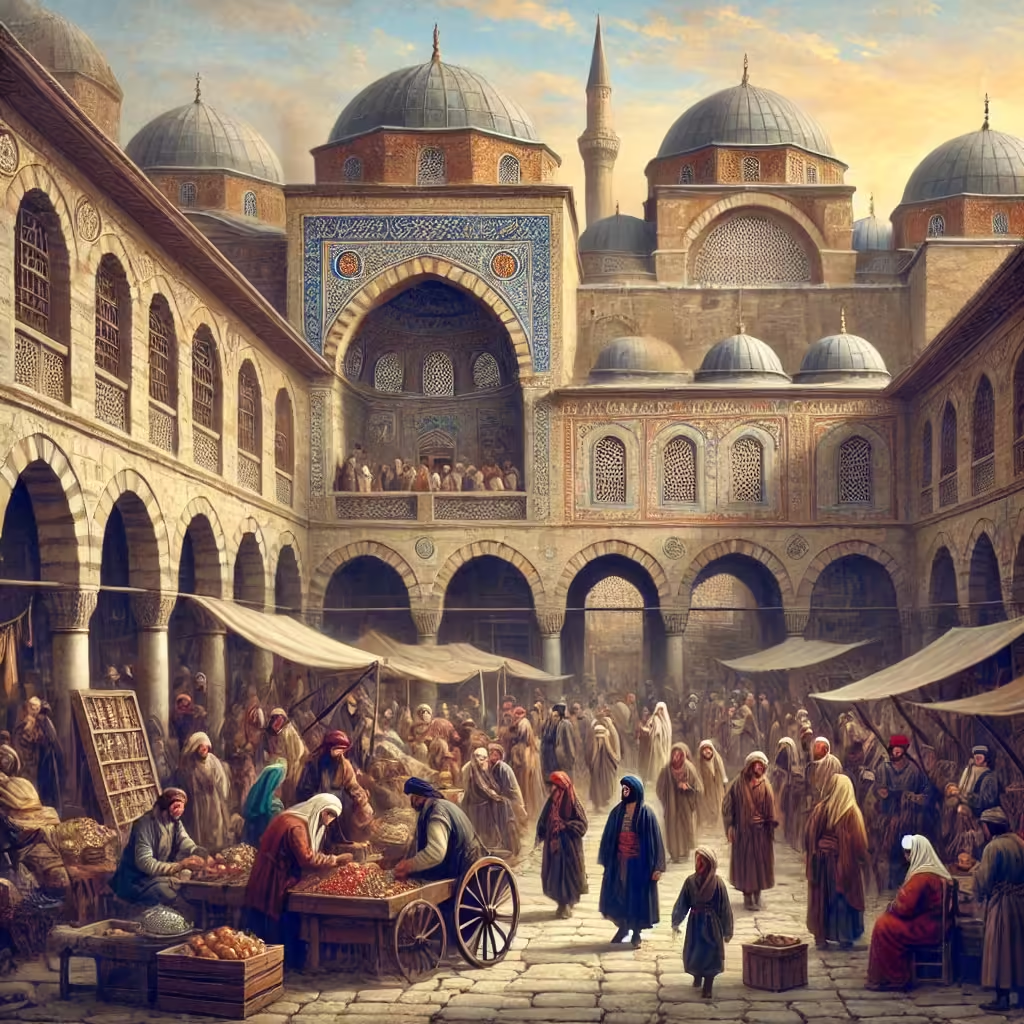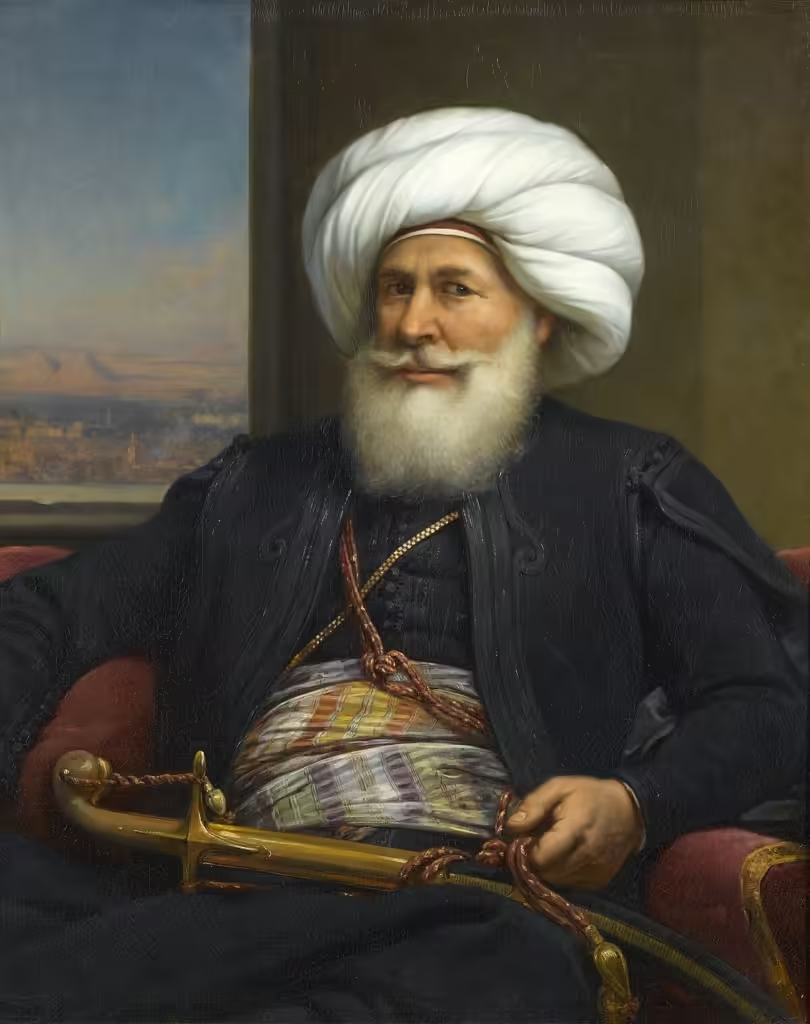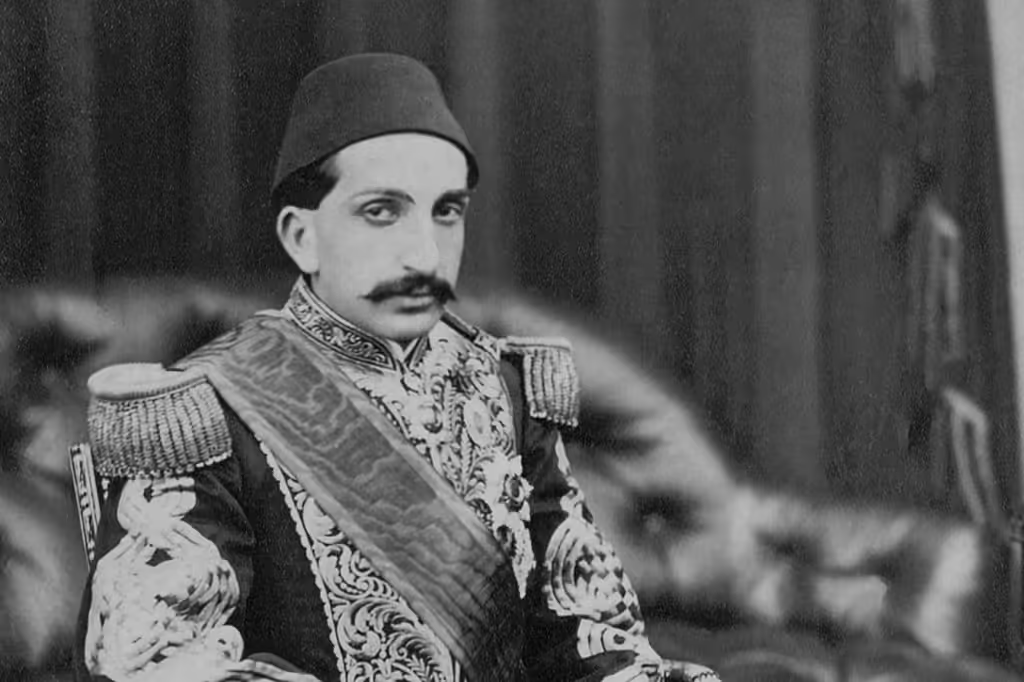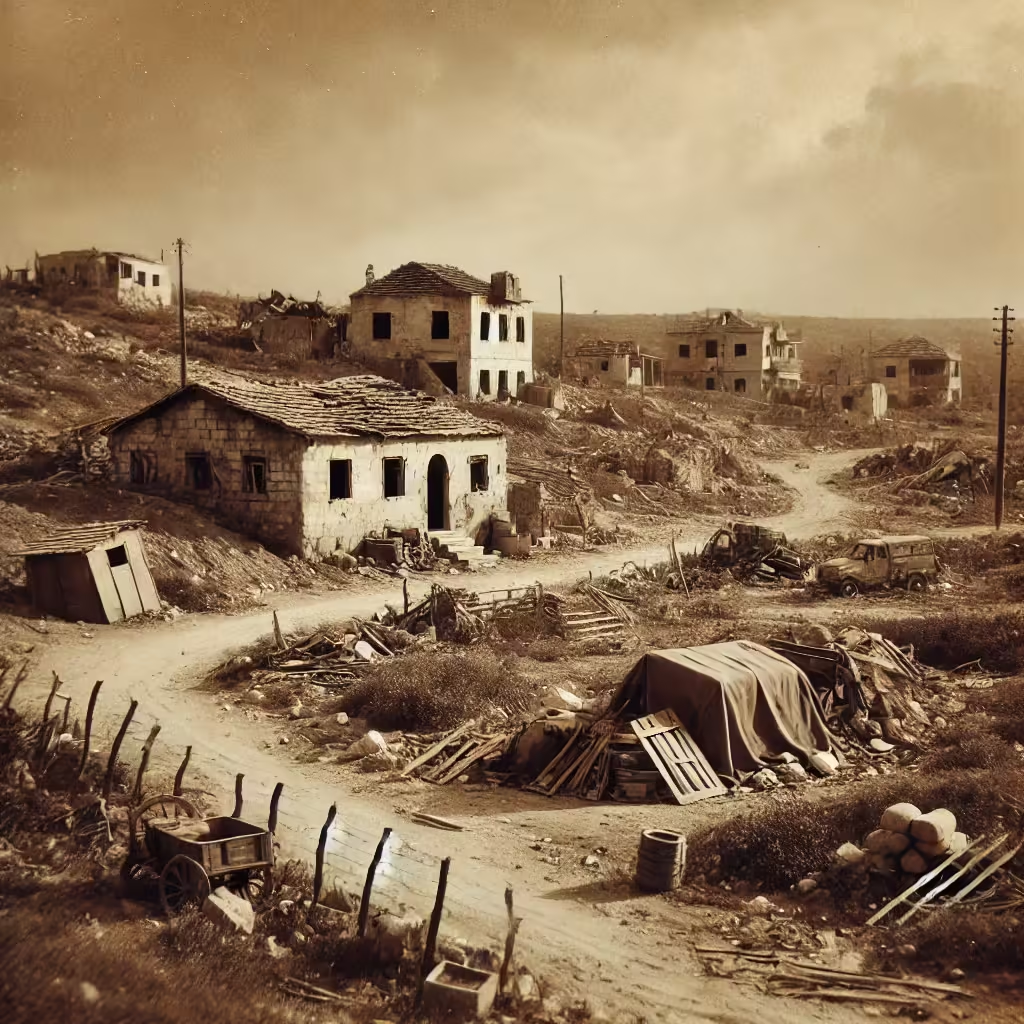Table of Contents
Understanding the Roots and Significance of the Palestinian Cause
The Al-Aqsa Flood operation, which began on October 7, 2023, along the Gaza Strip’s borders, marked a breach of the Israeli barrier by Hamas. Since that day—and now, over a year into the ongoing Israeli war on Gaza—many, particularly in the Western world, have approached this conflict as though the story of Gaza and Palestine began with these events. However, in the Arab world, the Palestinian cause has long been deeply embedded as a central issue. For Islamists, it holds profound significance due to Jerusalem and the Al-Aqsa Mosque; for Arab nationalists, it is viewed as occupied Arab territory; and for liberation movements, it represents a land under occupation.
For many Western nations and their people—even those far removed—the Palestinian issue had never been a focal point. The events of October 7 took them by surprise, as this large-scale operation presented an unprecedented challenge to Israel, even greater than the October 1973 War, when Egyptian and Syrian forces launched a surprise offensive. This revelation led many to understand that the Palestinian issue runs deep, not only for Arab and Islamic peoples but also for Israel, which is notably backed by the Western and global powers.
A year after this operation began, much had unfolded, prompting me to write a book aimed at distilling the essence of the Palestinian story and the roots of Zionism. What should an ordinary reader know? What insights are essential for Muslims and Arabs? How can we encapsulate the Palestinian issue—rich with complexities, events, and critical facts—into a straightforward book that can be easily read and understood, offering a clear view of this broad and significant topic? The goal was to achieve this in an accessible style, steering away from the academic or scientific tones that often distance general readers.
Thus, on October 7, 2024, the book titled A Summary of the Story of Palestine and Zionism: From the Roots of Zionism to the Al-Aqsa Flood1 was published.
Historical and Religious Significance of the Holy Land Across Centuries
The contemporary story—still unfolding today—has roots stretching back at least 200 years, though its religious and historical origins go much further. Jewish religious and political history, particularly during the eras of David and Solomon, includes periods of Persian and Roman rule, followed by the Islamic conquest of the Levant. Throughout time, a longstanding belief in the necessity of returning to Jerusalem persisted.
During the Ottoman Empire, there were modest efforts to return. Under rulers like Sultan Suleiman the Magnificent and later his son, Sultan Selim II, small initiatives sought to rescue individual Jews fleeing severe persecution in Spain. At that time, Spain had fallen under Catholic rule, with the Inquisition intensifying following the expulsion of Muslims from Andalusia. Both Muslims and Jews faced harsh persecution, prompting many Jews to migrate to the Ottoman Empire and Islamic regions in North Africa, with some settling in Egypt, Sinai, and the Levant.

There is an ancient religious aspiration tied to returning to this land. For Muslims, this land is sacred, encompassing Jerusalem—the revered city—and the Al-Aqsa Mosque, a place of immense blessings as referenced in the Quran:
“Exalted is HE who took HIS Servant [i.e., Prophet Muḥammad (Peace be upon Him)] by night from al-Masjid al-Ḥarām to al-Masjid al-Aqṣā, whose surroundings WE have blessed…”2
(Suraat ‘Al-‘Israa’, 17:1)
The Levant is described in several prophetic Ahadith as a blessed land, one of gathering and resurrection. For Christians, too, this land is holy, as it is where Jesus was born, lived, and, as they believe, was crucified, bringing redemption to humanity.
Thus, this land holds deep sanctity for the three major religions. However, these religious and historical connections, which remained the visions of mystics, rabbis, monks, and priests, did not transform into a political movement except during one notable period in Islamic history—the era of the Crusades.
The Islamic conquest famously liberated the Levant from the control of the Byzantine Empire—the Eastern Roman Empire, whose capital was then Constantinople. Muslims lifted the Roman-imposed persecution on Jews and other communities in the Levant. For more than twelve centuries, these lands remained under Islamic rule, except for a brief century during the Crusades when Al-Aqsa Mosque was occupied until it was reclaimed by Salah al-Din (Saladin). Later, during the Sixth Crusade, there were short-lived occupations, but Sultan al-Salih Najm al-Din Ayyub restored control.
So, what brought these issues back to the forefront? What factors caused them to re-emerge as pressing political realities?
European Shifts and the Strategic Role of Zionism in Colonial Ambitions
Several factors intersected to bring these issues back into focus. One significant factor was the schism within European Christianity. Martin Luther, a German priest, broke away from the Catholic Church, establishing Protestantism. Unlike Catholicism, Protestantism had a notably different approach to the Jewish community. While the Catholic Church viewed Jews with contempt, often persecuting and excluding them, Protestantism took an opposite stance. Protestants acknowledged that Christ, seen as God and the son of God in Christianity, was born a Jew. This shift altered the broader European perspective on Jews, Jerusalem, and the notion of a Jewish return to Jerusalem.
The second factor was Europe’s internal shift from religious rule toward secularism. As secularism gained ground, marginalized groups that had faced social, economic, and political exclusion began to find new opportunities. Among these groups were Jews, who gradually rose to hold positions as parliament members, statesmen, and even governmental ministers.

During this period, Europe was deeply involved in a major colonial enterprise. Starting with Spain and Portugal’s Age of Discovery, followed by England and France’s expansion, and later America and the Soviet Union, European colonialism sought to control global territories and achieved an unprecedented level of dominance.
In this context, the Zionist movement, which advocated for a Jewish return to Jerusalem, emerged as a strategic element. An alliance took shape, though opinions differ on its nature. Some argue that Europe’s colonial powers utilized the Zionist movement and its “human surplus” as an advanced military outpost for their colonial ambitions. Others contend that the Zionist movement, through careful planning and considerable political, financial, and social influence, leveraged the Western colonial project for its own goals. Perspectives vary on which side held the greater influence.
In my view, the Western powers held the upper hand, using the Zionist movement as a “functional group”, a term coined by Abd al-Wahhab el-Messiri. The establishment of a Zionist state in Palestine served as a strategic military base in the region. However, this concept did not emerge abruptly or spontaneously. To understand the factors that paved the way for this idea—particularly given the sacred status of the Levant and this land for Muslims—it’s essential to explore what led European politicians to envision and pursue such an agenda.
Early Foundations of Zionism: Influence of Muhammad Ali’s Rule and European Interests
Here begins another chapter of history with Muhammad Ali Pasha, the Ottoman governor of Egypt, who occupied the Levant. Known as the founder of modern Egypt, Muhammad Ali Pasha was deeply influenced by the West and was infamous for his oppressive and authoritarian rule. He was the first to break from the traditional Islamic system of governance, imposing severe control over the Egyptian people. Expanding his rule into the Levant, he seized it from the Ottoman Empire and governed for a decade.
During these ten years, Muhammad Ali used his connections with Europeans and Jewish communities to reshape the region’s economic, social, and political fabric. This period saw a notable influx of Christian and Jewish immigrants, as well as the early stages of the Zionist movement, which began establishing private schools and economic ventures in Palestine.
Moses Montefiore, the most renowned millionaire in Zionist history, had close ties with Muhammad Ali and was nearly successful in leasing 200 villages from him. Muhammad Ali even agreed to grant Montefiore autonomy over these villages in the Levant. During Muhammad Ali’s rule, the first foreign consulate in Jerusalem was also established. His broader policy favored occupation, often elevating Jews and Christians over Muslims, and foreign interests over those of the local population.

Throughout this decade, with increased immigration and the establishment of numerous Jewish synagogues and economic initiatives, the concept of Zionism began to take form. European powers saw an opportunity to address what they termed the “Jewish question” by proposing a homeland in the Levant. During these years, especially as the decade drew to a close, the earliest writings supporting such solutions emerged in the Western press. By 1838, 1839, and 1840, articles and books were appearing, suggesting the creation of a Zionist state in Palestine. Muhammad Ali’s occupation of the Levant, from 1831 to 1840, set the stage for these developments.
The years of Ottoman decline and Muhammad Ali’s rule over the Levant laid the groundwork for this emerging idea. As Muhammad Ali entered into conflict with the Ottoman Empire—amid broader global tensions involving Russia, Britain, and France—he eventually withdrew from the Levant. He retained control over Egypt and Sudan, securing his dynasty’s inheritance, while the Ottomans returned to power. However, they returned significantly weakened, unable to undo the foundations Muhammad Ali had set or reverse the demographic shifts that took place during his rule.
Following this period, other, lesser-known attempts were made to settle Jews in Palestine. These efforts eventually led to the most influential and organized attempt by Theodor Herzl, which formalized the Zionist movement.
British Mandate and the Foundations of Zionist Expansion in Palestine
Theodore Herzl is widely regarded as the founder of Zionism—a man who traveled extensively, seeking to persuade influential world powers that establishing a Jewish state in this region would be in their interest. He held discussions with British, German, and Russian leaders, the Vatican, and even the Ottoman Empire under Sultan Abdul Hamid II.
Looking at the Ottoman Empire’s stance, we see that sultans before Abdul Hamid II issued decrees to limit Jewish migration into Jerusalem, aiming to prevent a Jewish state from forming in the heart of the Islamic world. Herzl passed away without securing any concessions from Sultan Abdul Hamid, who was deposed in 1909. In the years that followed, the Ottoman Empire entered a period of severe decline, eventually collapsing after its defeat in World War I.

At this point, Herbert Samuel—the first Jewish minister in the British government—proposed a plan for Britain to occupy this land as a step toward establishing a Jewish state. With the collapse of the Ottoman Empire, no one saw themselves as responsible for Palestine or its defense. The British Empire, then the world’s dominant power, occupied Palestine with little resistance, as no nation felt a duty to liberate it. Palestine had been merely a small province within the vast Ottoman Empire. When the empire dissolved and the Turkish Republic retained only a portion of its former territory, it no longer considered the Levant or other lands to be under its responsibility.
The British occupation of Palestine spanned 30 years, beginning in 1917. In December of that year, British forces entered and occupied Jerusalem, and by 1918 they had taken control of the rest of Palestine after defeating the Ottoman Empire in three battles at Gaza. The British Empire also recruited many soldiers from its territories—fighters and auxiliaries from Egypt, India, and other Islamic regions—similar to how France enlisted Algerians, Moroccans, and Senegalese.
During these 30 years, from 1917-1918 until 1948, Britain made extensive efforts to bolster the Zionist movement in the region. They facilitated economic growth, established an independent educational system for Zionists, allowed them to bear arms, provided military training, and enacted laws enabling land acquisition. Meanwhile, Britain actively suppressed Palestinian efforts to bear arms, form leadership, or establish any political representation. Under the British Mandate, the Palestinian people faced immense hardship.
Yet, despite these extensive Zionist and British efforts, by the end of the British occupation, Zionists controlled only 6% of the land and did not form a majority in Palestine. When did this large-scale expansion happen? Surprisingly, it occurred following the defeat of the Arab armies.
Shifts in Arab-Israeli Dynamics: The Impact of Military Engagements and Normalization Efforts
Prior to the arrival and subsequent defeat of the Arab armies in 1948, Zionists controlled only 6% of Palestine. After the Arab armies’ defeat, they expanded their control to 78%—a vast increase from the small portion they initially held.
This major loss marked a turning point. Although Arab states, particularly those bordering Palestine, entered what was termed a period of “independence”, it was largely symbolic and did not translate into genuine autonomy. These armies and governments had neither the strategy nor the intent to liberate Palestine or confront Israel. Instead, Israel expanded further, taking the remaining parts of Palestine and adding the Golan Heights and the Sinai Peninsula. By 1967, Israel had tripled its territory, a defeat that neither the Egyptian, Jordanian, nor Syrian forces could prevent.
Thus, the occupation of Palestine can be seen as a direct outcome of the failures of the Arab armies and the regimes that emerged after 1948.

During this period, a trend of normalization and concession began to take shape. Although the Egyptian and Syrian armies launched a surprise attack in 1973—known as the October War—which is often celebrated by both countries as a victory, the reality was more complex. While the initial attack caught Israel off guard, it quickly rebounded, and the war ultimately ended in a stalemate. At best, the October War was a partial military success that, through political maneuvering, transformed into a broader defeat.
The real loss came when Egypt pursued normalization with Israel under the label of “peace”, which in effect was a concession. Egypt regained its own territory but distanced itself from the Palestinian cause, even relinquishing control over Gaza, which had been under Egyptian administration prior to 1967.
Egypt’s decision to normalize—though one among 23 Arab nations—carried weight far beyond its number. As a country of around 100 million people, Egypt comprises about a quarter of the Arab world, which totals roughly 400 million. It shares a direct border with Palestine and holds significant political, economic, cultural, and social influence. Egypt’s withdrawal from the Palestinian cause was therefore a profound setback, diminishing the collective Arab support for Palestine.
Evolution of Palestinian Resistance: From Early Islamic Roots to Secular Movements and Back to Islamic Resistance
In 1957, resistance movements began to take shape, starting with the Fatah movement. Notably, the earliest resistance efforts in Palestine were entirely Islamic in nature. These efforts were pioneered by figures like Izz al-Din al-Qassam and continued by Sheikh Amin al-Husseini, the Grand Mufti of Jerusalem and head of the Arab Higher Committee.

For a time, non-Islamic resistance factions emerged, such as Fatah and the Popular Front. This shift was largely due to the influence of Arab regimes established after 1948, which were predominantly secular and nationalist, often aligned with either the Western or Eastern blocs. These regimes treated Islamist movements harshly, frequently resorting to severe violence, which contributed to the rise of secular resistance. This secular resistance initially made notable progress, aided by various factors. However, its trajectory ultimately shifted when Fatah assumed control of the Palestine Liberation Organization (PLO), an entity established by Arab states to represent and lead the Palestinian cause.
The PLO entered into the Oslo Accords, and, as poet Ahmed Matar fittingly remarked,
“The bull did not return, but the pen went after him”.
The Arab world followed Egypt’s lead in the peace process, including Yasser Arafat, head of the PLO. While Arafat was involved in peace negotiations, Islamic resistance resurfaced through the Hamas movement, followed by Islamic Jihad and other smaller groups. These movements aimed to re-liberate Palestine but encountered even harsher challenges, as a Palestinian Authority had been established with a role that included maintaining Israel’s security.
Conclusion
The story of Palestine is vast and intricate, but I have endeavored to capture its essence in this book—from its ancient, deeply rooted history to the recent conflicts led by the Islamic resistance, especially following the liberation of the Gaza Strip, marking it as the first reclaimed land in Palestine.
I invite you to read this book, and we ask ALLAH Almighty to make it beneficial.
Sources:
- Mohamed Elhamy. ما يسطرون | كتاب: خلاصة قصة فلسطين | محمد إلهامي. YouTube Video.
- Download the Arabic Version ↩︎
- Saheeh International translation ↩︎

